Sandy Allen in Guernica:
 I have read before with fascination about the neurology of London cab drivers. Prospective London cabbies must memorize a preposterous amount of geographic information in order to pass the rigorous cab driver exam. Researchers have put drivers in brain scanners, wondering, is there something inherently different about their brains that allows them to memorize so much? Or does the memorization change their brains? They’ve found that in London cabbies’ brains, the area associated with memory is larger. This raises an enormous question, one that medicine still hasn’t figured out: when it comes to what happens inside our skulls, what makes an individual fall into or out of some standard called “normal?”
I have read before with fascination about the neurology of London cab drivers. Prospective London cabbies must memorize a preposterous amount of geographic information in order to pass the rigorous cab driver exam. Researchers have put drivers in brain scanners, wondering, is there something inherently different about their brains that allows them to memorize so much? Or does the memorization change their brains? They’ve found that in London cabbies’ brains, the area associated with memory is larger. This raises an enormous question, one that medicine still hasn’t figured out: when it comes to what happens inside our skulls, what makes an individual fall into or out of some standard called “normal?”
I thought about this on a Friday morning in early 2016, after my red-eye landed at Heathrow and I walked to find a cab. There was a particular museum just south of London that I desperately wanted to go to. For some months, I’d been visiting its website over and over. More recently, I’d been trying to convince my boyfriend that we needed to go to London for a weekend. He had some days off coming up and the means to go, I reasoned. It’d be romantic. “Plus,” I said, as if it were an afterthought, “I can go to that museum I’ve wanted to go to!”
The day we were to fly was also the day I was supposed to file a draft of my first book to my publisher. In the days leading up to the deadline, I hardly slept. I woke early and worked continuously, eventually closing my eyes past midnight but rising again in the dark, making another pot of coffee and continuing on. I paced the apartment. I read aloud to myself. I printed pages and wrote profanity in the margins. I muttered and cursed. I looked out the windows and wept. I handed in the draft just hours before we left for the airport.
I felt good! I felt great! The book was done! I told anyone who asked, and some who didn’t. Some weeks later, my editors would summon me and make clear, as gently as they could, that the work wasn’t finished, not at all. As they explained this to me in a small conference room over the course of an hour and a half, I tried not to cry. I managed to hold back tears until I was on the train home, and then kept at it for many days after. Eventually I’d tear the draft apart and rewrite the book entirely. Some months later, I’d do it again. The actual “the book is finished!” feeling wouldn’t arrive for another year and a half.
More here.
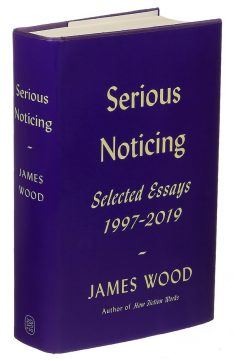 In the introduction, Wood mentions that he was taught how to read by a deconstructionist who would badger the class with the same question: “What are the stakes here?” The two voices mingling in this collection give a beautiful, moving sense of the stakes of criticism as Wood has practiced it, vigorously, without interruption for 30 years: What does it mean to do this work well, and what does it add to the world? What has it added to his life? Wood’s latest novel, “Upstate,” which follows a deeply depressed philosopher, dramatizes these questions about the relationships between analysis and fulfillment. He writes in that book: “If intelligent people could think themselves into happiness, intellectuals would be the happiest people on earth.”
In the introduction, Wood mentions that he was taught how to read by a deconstructionist who would badger the class with the same question: “What are the stakes here?” The two voices mingling in this collection give a beautiful, moving sense of the stakes of criticism as Wood has practiced it, vigorously, without interruption for 30 years: What does it mean to do this work well, and what does it add to the world? What has it added to his life? Wood’s latest novel, “Upstate,” which follows a deeply depressed philosopher, dramatizes these questions about the relationships between analysis and fulfillment. He writes in that book: “If intelligent people could think themselves into happiness, intellectuals would be the happiest people on earth.”
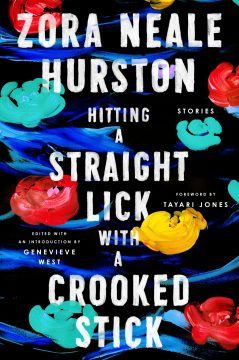 Sixty years after Zora Neale Hurston’s death in relative obscurity, a new collection of short fiction by the legendary African American author and anthropologist has arrived. For readers who are more familiar with Hurston’s novels, the collection “
Sixty years after Zora Neale Hurston’s death in relative obscurity, a new collection of short fiction by the legendary African American author and anthropologist has arrived. For readers who are more familiar with Hurston’s novels, the collection “ “Please don’t make me vote for Joe Biden!” a flock of teenagers pleaded in a
“Please don’t make me vote for Joe Biden!” a flock of teenagers pleaded in a  In the middle of September, shortly before the House of Representatives opened its impeachment inquiry against President Trump, I started texting with his personal lawyer, Rudolph Giuliani, to try to arrange a time to get together. I stressed that I wasn’t looking for sound bites; I wanted to talk, in depth, about the whole arc of his career, with the goal of explaining how he wound up at the center of this historic moment. There were several weeks of inconclusive, if at times amusing, exchanges — when I reminded him of the numerous Giuliani profiles this magazine has published over the course of the last four decades, he ‘‘loved’’ my text — before I decided to call him on his cellphone. It was a Friday evening, a few days after his business associates Lev Parnas and Igor Fruman were arraigned on charges of conspiring to funnel foreign money into American elections. To my surprise, Giuliani answered. I could hear that he was in a crowded bar or restaurant; he sounded as if he was in good spirits. ‘‘I really want to talk to you,’’ he said. ‘‘The thing is, I’m a little busy right now. Give me another week, and I should have all of this behind me.’’
In the middle of September, shortly before the House of Representatives opened its impeachment inquiry against President Trump, I started texting with his personal lawyer, Rudolph Giuliani, to try to arrange a time to get together. I stressed that I wasn’t looking for sound bites; I wanted to talk, in depth, about the whole arc of his career, with the goal of explaining how he wound up at the center of this historic moment. There were several weeks of inconclusive, if at times amusing, exchanges — when I reminded him of the numerous Giuliani profiles this magazine has published over the course of the last four decades, he ‘‘loved’’ my text — before I decided to call him on his cellphone. It was a Friday evening, a few days after his business associates Lev Parnas and Igor Fruman were arraigned on charges of conspiring to funnel foreign money into American elections. To my surprise, Giuliani answered. I could hear that he was in a crowded bar or restaurant; he sounded as if he was in good spirits. ‘‘I really want to talk to you,’’ he said. ‘‘The thing is, I’m a little busy right now. Give me another week, and I should have all of this behind me.’’ During schoolyard spats between young boys, conflicts rarely end in punches. There is, instead, a perpetual appeal to those higher up in the food chain—all grade-school boys magically have a big brother who is ready, apparently, to fight someone half their age, or, if necessary, beat up the rival’s hypothetical older brother. Because of an eight-year-old boy’s inability to really hurt anybody, harkening to brothers capable of real violence is a means of confirming one’s own capacity to provoke fear in others.
During schoolyard spats between young boys, conflicts rarely end in punches. There is, instead, a perpetual appeal to those higher up in the food chain—all grade-school boys magically have a big brother who is ready, apparently, to fight someone half their age, or, if necessary, beat up the rival’s hypothetical older brother. Because of an eight-year-old boy’s inability to really hurt anybody, harkening to brothers capable of real violence is a means of confirming one’s own capacity to provoke fear in others.
 There has never been more anxiety about the effects of our love of screens — which now bombard us with social-media updates, news (real and fake), advertising and blue-spectrum light that could disrupt our sleep. Concerns are growing about impacts on mental and physical health, education, relationships, even on politics and democracy. Just last year, the World Health Organization issued new guidelines about limiting children’s screen time; the US Congress investigated the influence of social media on political bias and voting; and California introduced a law (Assembly Bill 272) that allows schools to restrict pupils’ use of smartphones.
There has never been more anxiety about the effects of our love of screens — which now bombard us with social-media updates, news (real and fake), advertising and blue-spectrum light that could disrupt our sleep. Concerns are growing about impacts on mental and physical health, education, relationships, even on politics and democracy. Just last year, the World Health Organization issued new guidelines about limiting children’s screen time; the US Congress investigated the influence of social media on political bias and voting; and California introduced a law (Assembly Bill 272) that allows schools to restrict pupils’ use of smartphones. If climate change, nuclear standoffs, assault weapons, hate crimes, mass killings, Russian trolls, near-record inequality, kids locked in cages at our border, and Donald Trump in the White House don’t occasionally cause you feelings of impending doom, you’re not human.
If climate change, nuclear standoffs, assault weapons, hate crimes, mass killings, Russian trolls, near-record inequality, kids locked in cages at our border, and Donald Trump in the White House don’t occasionally cause you feelings of impending doom, you’re not human. The German word Bildung is notoriously difficult to render in English. Its most common meaning is perhaps ‘education,’ though in a more capacious sense than what happens exclusively in schools and universities. It is related to the German for ‘image’ (Bild) and the verb meaning ‘to form, shape, construct’ (bilden), and so suggests, when applied to a human being, a kind of quasi-aesthetic formation of one’s character. The complexities and ambiguities of the term provide a considerable obstacle to those interested in late eighteenth and early nineteenth-century German ethical thought, in which the ideal of Bildung plays a crucial role. In this splendid book, Jennifer Herdt has thus provided a valuable service in tracing the ways in which the concept of Bildung figures in the work of some of the most prominent thinkers of the period. With verve and impressive erudition, Herdt details how the notion of Bildung originated in the German pietist movement in the seventeenth century, and blossomed into a more (though perhaps not entirely) humanistic ideal in the subsequent work of Herder, Wilhelm von Humboldt, Schiller, Goethe, and Hegel. Though these figures differ in many crucial respects, they are united by the idea that human beings are “oriented toward a telos conceived as the harmonious development of all their various capacities . . . into a balanced, unified whole” (p. 82).
The German word Bildung is notoriously difficult to render in English. Its most common meaning is perhaps ‘education,’ though in a more capacious sense than what happens exclusively in schools and universities. It is related to the German for ‘image’ (Bild) and the verb meaning ‘to form, shape, construct’ (bilden), and so suggests, when applied to a human being, a kind of quasi-aesthetic formation of one’s character. The complexities and ambiguities of the term provide a considerable obstacle to those interested in late eighteenth and early nineteenth-century German ethical thought, in which the ideal of Bildung plays a crucial role. In this splendid book, Jennifer Herdt has thus provided a valuable service in tracing the ways in which the concept of Bildung figures in the work of some of the most prominent thinkers of the period. With verve and impressive erudition, Herdt details how the notion of Bildung originated in the German pietist movement in the seventeenth century, and blossomed into a more (though perhaps not entirely) humanistic ideal in the subsequent work of Herder, Wilhelm von Humboldt, Schiller, Goethe, and Hegel. Though these figures differ in many crucial respects, they are united by the idea that human beings are “oriented toward a telos conceived as the harmonious development of all their various capacities . . . into a balanced, unified whole” (p. 82).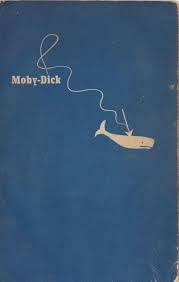 Perhaps it’s no surprise that the Great American Novel was born in 1868, only a few years after the end of the Civil War. Writing in
Perhaps it’s no surprise that the Great American Novel was born in 1868, only a few years after the end of the Civil War. Writing in 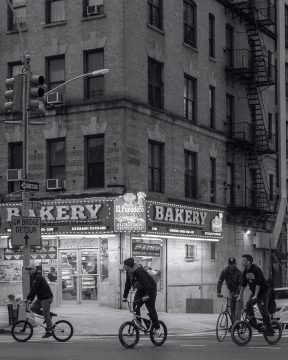
 I have read before with fascination about the neurology of London cab drivers. Prospective London cabbies must memorize a preposterous amount of geographic information in order to pass the rigorous cab driver exam. Researchers have put drivers in brain scanners, wondering, is there something inherently different about their brains that allows them to memorize so much? Or does the memorization change their brains? They’ve found that in London cabbies’ brains, the area associated with memory is larger. This raises an enormous question, one that medicine still hasn’t figured out: when it comes to what happens inside our skulls, what makes an individual fall into or out of some standard called “normal?”
I have read before with fascination about the neurology of London cab drivers. Prospective London cabbies must memorize a preposterous amount of geographic information in order to pass the rigorous cab driver exam. Researchers have put drivers in brain scanners, wondering, is there something inherently different about their brains that allows them to memorize so much? Or does the memorization change their brains? They’ve found that in London cabbies’ brains, the area associated with memory is larger. This raises an enormous question, one that medicine still hasn’t figured out: when it comes to what happens inside our skulls, what makes an individual fall into or out of some standard called “normal?”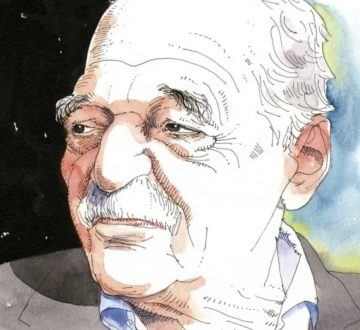 To begin with, it was the journalism that enabled him to make a precarious living while he wrote fiction, often at night. Yet even after the global success of his 1967 novel One Hundred Years of Solitude, he continued to write articles, commentaries, and reported pieces at an impressive rate. In Spanish, his collected Obra Periodística—not including three book-length works of reportage—spans five volumes, comprising more than 3,000 pages. The Scandal of the Century is the first English-language selection from this vast body of work. Long overdue, it provides a fairly representative slice of García Márquez’s journalistic output. In the first half, we track his movements across the globe, from 1940s Colombia through a string of international assignments in the ’50s and ’60s: Rome, Paris, Budapest, Caracas, and Havana, among many others. In the latter half, we find a more rooted García Márquez, largely through the columns he wrote for El País in the ’80s from Mexico City, where he lived much of the time from the ’70s onward.
To begin with, it was the journalism that enabled him to make a precarious living while he wrote fiction, often at night. Yet even after the global success of his 1967 novel One Hundred Years of Solitude, he continued to write articles, commentaries, and reported pieces at an impressive rate. In Spanish, his collected Obra Periodística—not including three book-length works of reportage—spans five volumes, comprising more than 3,000 pages. The Scandal of the Century is the first English-language selection from this vast body of work. Long overdue, it provides a fairly representative slice of García Márquez’s journalistic output. In the first half, we track his movements across the globe, from 1940s Colombia through a string of international assignments in the ’50s and ’60s: Rome, Paris, Budapest, Caracas, and Havana, among many others. In the latter half, we find a more rooted García Márquez, largely through the columns he wrote for El País in the ’80s from Mexico City, where he lived much of the time from the ’70s onward. In 2004, two Amish children—siblings, in fact—died while playing. They weren’t doing anything particularly dangerous, just normal recreation, but somehow they both passed away suddenly.
In 2004, two Amish children—siblings, in fact—died while playing. They weren’t doing anything particularly dangerous, just normal recreation, but somehow they both passed away suddenly.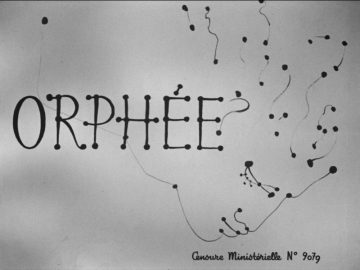 Orpheus is a film that deals in the interpretation of signs and meaning. It is one of the few films that deals with that in a direct and palpable way. Others from the same period as Orpheus are detective films and film noirs. This decoding is not just subtext nor is it merely somehow inscribed in the film for us to discover using our critical faculties. It is the film’s subject matter. That’s why Orpheus was also called, when it came out, “a detective story from the beyond.”
Orpheus is a film that deals in the interpretation of signs and meaning. It is one of the few films that deals with that in a direct and palpable way. Others from the same period as Orpheus are detective films and film noirs. This decoding is not just subtext nor is it merely somehow inscribed in the film for us to discover using our critical faculties. It is the film’s subject matter. That’s why Orpheus was also called, when it came out, “a detective story from the beyond.”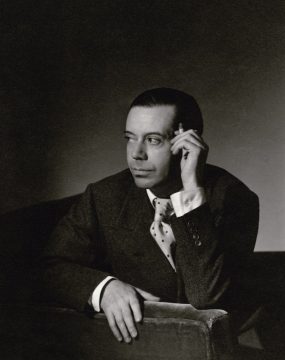 Porter is so famous for his gifts as a lyricist that it might seem mischievous to the point of perversity to suggest that his real greatness resides in his skills as a composer. Yet how many other popular composers have had more hits with instrumental, unsung versions of their work? Artie Shaw’s version of “Begin the Beguine” is the best known, but the Dave Brubeck Quartet’s album of Porter songs, from the mid-sixties, with Paul Desmond’s peerless sax, is just as good. Though rarely overtly jazz in the Arlen-Gershwin manner, his melodies have so much mysterious inner propulsion that, asked to swing, they practically swing themselves.
Porter is so famous for his gifts as a lyricist that it might seem mischievous to the point of perversity to suggest that his real greatness resides in his skills as a composer. Yet how many other popular composers have had more hits with instrumental, unsung versions of their work? Artie Shaw’s version of “Begin the Beguine” is the best known, but the Dave Brubeck Quartet’s album of Porter songs, from the mid-sixties, with Paul Desmond’s peerless sax, is just as good. Though rarely overtly jazz in the Arlen-Gershwin manner, his melodies have so much mysterious inner propulsion that, asked to swing, they practically swing themselves.